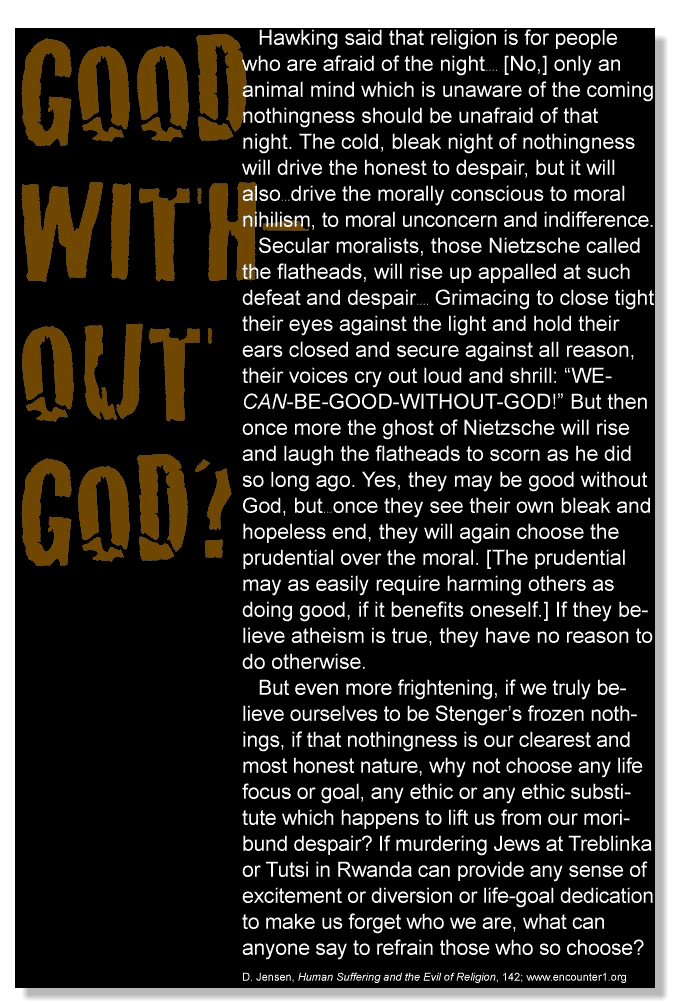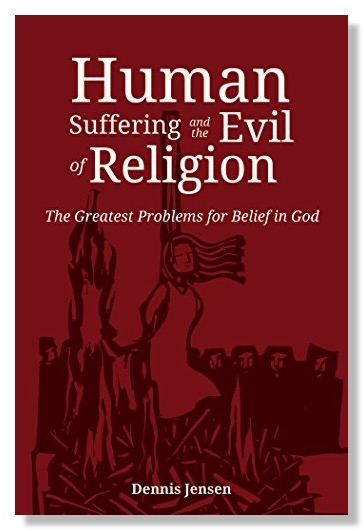Human Suffering and the Evil of Religion
In 2018 I wrote Human Suffering and the Evil of Religion. The first part of the book looks at some common answers to the problem of human suffering which Christians and other theists would offer, as well as some answers which are not that common. Much of this approach to the problem of evil is covered at this website in the debate with Paul Doland on the problem of evil. Looking at the first two chapters in the biblical book of Job we see that God allows Job great pain in order to test him to see if he will remain faithful to the God he knows and loves or if he will reject this God. We also see that Job becomes good in a way he never could without that testing as he chooses to be faithful to God. But furthermore, God fully recompenses those who endure undeserved suffering to the point that it outweighs any suffering they had endured. This is called the Recipient Oriented Free Will Theodicy. (A theodicy is an answer for why God allows evil; it is a justification of God’s actions.)
A second testing oriented theodicy is called the Observer Oriented Free Will Theodicy. Here God is looking to see how we will respond to others who are suffering: will we seek to have God’s heart, God’s compassion for them? Will we act in any way we can to alleviate their suffering?
The idea of God needing to know how we will respond to God in the face of suffering or how an outside observer of suffering will respond to the suffering of others, runs counter to some common Christian and other theistic views. For this reason I have added the following link to a discussion of some of these differing views of divine foreknowledge and how they affect the answers to the problem of suffering in this book.
The second part of the book deals with a favorite subject in anti-Christian literature, the claim that religion, and Christianity in particular, causes much harm and suffering in the world and little or no good. In the introduction I write, “If both do produce such harm, wouldn’t this give us reason to think religions in general, and especially Christianity, should be rejected? To be honest, this would not give us reason to think that any religion is false but it might bring us to avoid seriously embracing or even looking into such a religion.” Further discussion of the problem of evil Christians can be found on this website. This study also looks at some of the more serious ethical difficulties with atheism. In the last chapter before the summary, some serious ethical problems are discussed which appear to result from secularism. The following meme quotes a portion of the last page of this chapter.

If the above image is not visible on your display the text reads:
GOOD WITHOUT GOD? Hawking said that religion is for people who are afraid of the night…. [No,] only an animal mind which is unaware of the coming nothingness should be unafraid of that night. The cold, bleak night of nothingness will drive the honest to despair, but it will also…drive the morally conscious to moral nihilism, to moral unconcern and indifference.
Secular moralists, those Nietzsche called the flatheads, will rise up appalled at such defeat and despair…. Grimacing to close tight their eyes against the light and hold their ears closed and secure against all reason, their voices cry out loud and shrill: “WE-CAN-BE-GOOD-WITHOUT-GOD!” But then once more the ghost of Nietzsche will rise and laugh the flatheads to scorn as he did so long ago. Yes, they may be good without God, but…once they see their own bleak and hopeless end, they will again choose the prudential over the moral. [The prudential may as easily require harming others as doing good, if it benefits oneself.] If they believe atheism is true, they have no reason to do otherwise.
But even more frightening, if we truly believe ourselves to be Stenger’s frozen nothings, if that nothingness is our clearest and most honest nature, why not choose any life focus or goal, any ethic or any ethic substitute which happens to lift us from our moribund despair? If murdering Jews at Treblinka or Tutsi in Rwanda can provide any sense of excitement or diversion or life-goal dedication to make us forget who we are, what can anyone say to refrain those who so choose? D. Jensen, Human Suffering and the Evil of Religion, 142;
Dennis Jensen, October 2019

